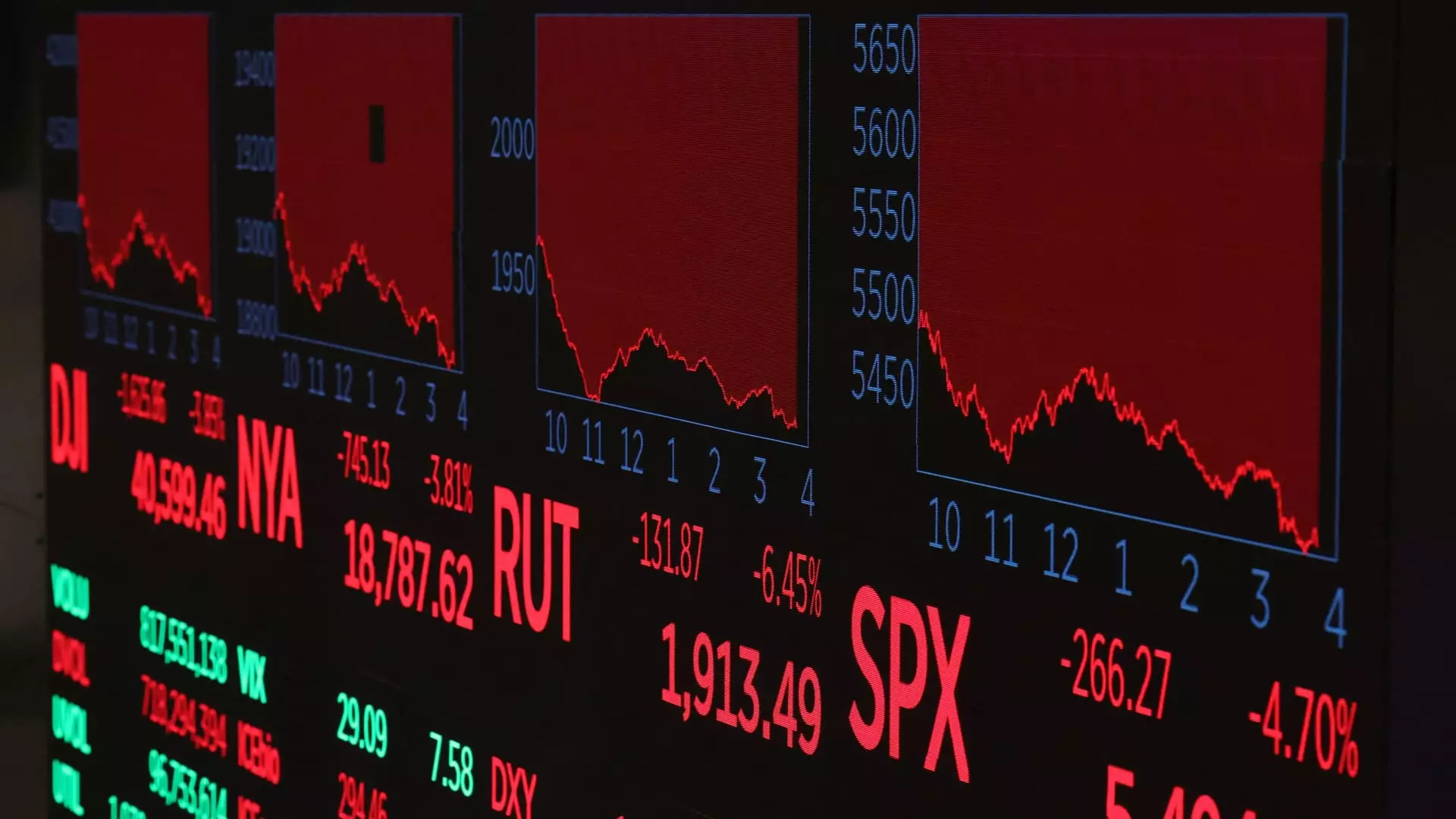Over the past few years, the stock market has become a roller coaster of emotions for everyday investors. With the deadweight of rising inflation and geopolitical uncertainties looming, the market has often acted like a petulant child. Yet, amidst the chaos orchestrated by policy shifts and executive decisions, some investors remain resolute, convinced that every downturn offers an opportunity cloaked in adversity. This sentiment certainly found its echoes recently as retail investors rushed in with an astounding $8.8 billion directed towards equities, seeing the downturn not as a cause for alarm but as a golden buying opportunity.
This strategy of “buying the dip,” while certainly not novel, seems to find renewed vigor in markets shaken by abrupt changes in tariffs championed by figures like former President Donald Trump. Every minor market fluctuation seems to evoke a quick-stock reaction among a cadre of small investors who often appear immune to the overwhelming fear that drives institutional investors into hiding.
The Retail Resilience
Perhaps it’s because retail investors, guided often by instinct and guidance from social media influencers, are buoyed by a sense of ownership in the market that institutional players lack. The statistics speak volumes about this shift: during a recent week where the broad S&P 500 index tumbled, retail investors continued to pump billions into the market, unfazed by professional strategists predicting doom and gloom.
What this behavior suggests is an evolving market dynamic – one where the retail investor fronts their individual narratives of personal experiences and ambitions rather than adhering to the collective fear circulating on trading floors. Investing is increasingly becoming less of a calculated decision driven purely by numerical data and technical analysis, shifting instead towards an emotional and personal approach. The likes of Rachel Hazit exemplify this mentality; despite understanding the wider economic pressures, she continues to deploy cash into equities, interpreting market declines as chances to snag deals rather than triggers for panic.
The Duality of Opportunity and Anxiety
Yet, riding the waves of volatility is a risky game. The recent spike in retail investments occurred on one of the most tumultuous weeks in recent memory, with indices witnessing not just drops, but unprecedented intraday swings. The CBOE Volatility Index, also known as Wall Street’s fear gauge, reflects this anxiety, having soared to levels not seen since the early days of the pandemic. While many retail investors find comfort in their bullish resolve, the potential repercussions of such movements must not be understated.
Traders like Marco Iachini of Vanda Research note that FOMO—Fear of Missing Out—often drives retail traders to act against financial prudence. This isn’t to say that “buying the dip” isn’t rational. However, is it prudent when those dips are primarily induced by significant economic disruptions? Newer investors may find themselves caught in a storm of uncertainty, yearning for immediate gains yet blindly ignoring the long-term ramifications that loiter beyond each market downturn.
The Long Game vs. Short-term Strategy
For many retail investors, the allure of potentially high returns clouds more steady investment philosophies. Those who favor a long-term perspective often recommend diversifying investments across indices rather than diving into the latest hot stock, a strategy championed during recent days by the likes of Namaan Mian. It raises an essential question: are retail investors collectively abandoning wiser, long-tested strategies in favor of a more impulsive, trendy purchasing strategy?
Indeed, as we move forward into uncertain economic waters, it should be acknowledged that while some perceive opportunity with every dip, others may feel a growing sense of dread about their investment futures. The economic implications of political decisions regarding tariffs, inflation, and market strain cannot be ignored or wished away.
The stories of retail investors like Hazit demonstrate resilience but also highlight the nuances of making investment decisions amid fluctuating circumstances. It underscores a vital truth: while the urge to act quickly may yield short-term wins, understanding market fundamentals and maintaining an emotional detachment could well be the key to long-term success.
As the market continues to experience volatility, it brings into focus the age-old question of risk versus reward. While the tide may swell for retail investors today, in louder economic climes tomorrow, practicality must take precedence over impulse.

